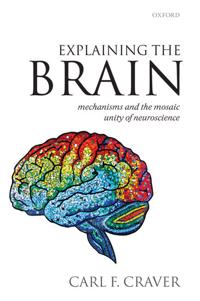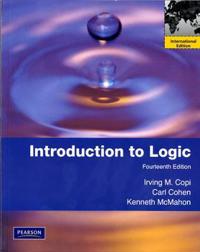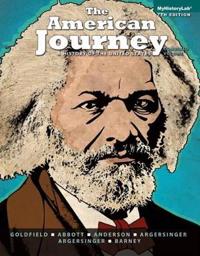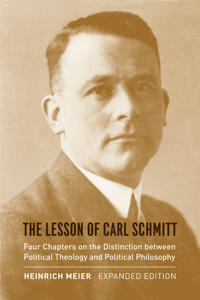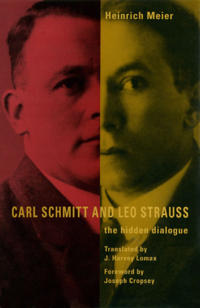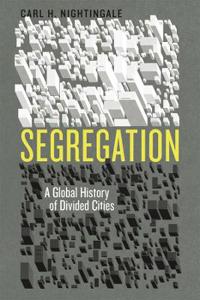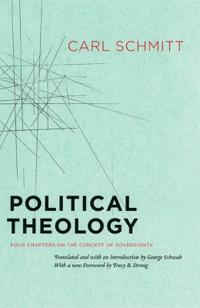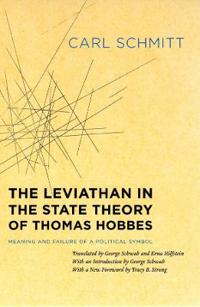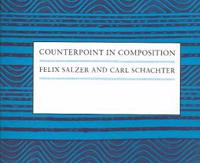Explaining the Brain (Häftad)
avCarl F. Craver
ISBN: 9780199568222 - UTGIVEN: 200907What distinguishes good explanations in neuroscience from bad? Carl F. Craver constructs and defends standards for evaluating neuroscientific explanations that are grounded in a systematic view of what neuroscientific explanations are: descriptions of multilevel mechanisms. In developing this appr[...]
SAQs for the Final FRCA Examination (Häftad)
avJames R. Shorthouse, Graham Barker, Carl Waldmann
ISBN: 9780199583287 - UTGIVEN: 201106This book offers a comprehensive solution to any person wishing to sit, and ultimately pass, the SAQ paper for the Final FRCA. It is designed specifically to fit the examination format, with each double page spread containing a sample question and detailed model answer, acting both as a revision gui[...]
A Dictionary of Chemical Engineering (Häftad)
avCarl Schaschke
ISBN: 9780199651450 - UTGIVEN: 2014-01A Dictionary of Chemical Engineering is one of the latest additions to the market leading Oxford Paperback Reference series. In over 3,400 concise and authoritative A to Z entries, it provides definitions and explanations for chemical engineering terms in areas including: materials, energy balances,[...]
Epilepsy (Pocket)
avCarl W. Bazil, Derek J. Chong, Daniel Friedman
ISBN: 9780199743506 - UTGIVEN: 2011-05Patients with epilpesy pose many clinical challenges. Even experienced clinicians occasionally arrive at the point where diagnostic, work-up, treatment, or prognostic thinking becomes blocked. Epilepsy is the fifth volume in the "What Do I Do Now?" series and provides the clinician with the necessar[...]
The Oxford Handbook of Carl Schmitt
ISBN: 9780199916931 - UTGIVEN: 2017-03The Oxford Handbook of Carl Schmitt collects thirty original chapters on the diverse oeuvre of one of the most controversial thinkers of the twentieth century. Carl Schmitt (1888-1985) was a German theorist whose anti-liberalism continues to inspire scholars and practitioners on both the Left and th[...]
Introduction to Logic (Häftad)
avIrving M. Copi, Carl Cohen, Kenneth McMahon
ISBN: 9780205024476 - UTGIVEN: 201010The 14th Edition of Introduction to Logic, written by Copi, Cohen & McMahon, is dedicated to the many thousands of students and their teachers - at hundreds of universities in the United States and around the world - who have used itsfundamental methods and techniques of correct reasoning in theirev[...]
Twentieth-century America (Häftad)
avDavid Goldfield, Carl Abbott, Jo Ann E. Argersinger
ISBN: 9780205920235 - UTGIVEN: 201212A compelling story of 20th century events and people, including those familiar and unfamiliar to students. The goal of this book is to emphasize what students need to know about Americaâs past to function best in the society that emerged from the 20th century. The authors accomplish this by u[...]
The American Journey, Combined Volume (Häftad)
avDavid Goldfield, Carl Abbott, Virginia DeJohn Anderson
ISBN: 9780205958528 - UTGIVEN: 2013-06Frames American history through personal and collective journeys Offering a blend of political and social histories, The American Journey shows that our attempt to live up to our American ideals is an ongoing journey-one that has become increasingly more inclusive of different groups and ideas. With[...]
The Lesson of Carl Schmitt (häftad)
ISBN: 9780226518862 - UTGIVEN: 2011-09Heinrich Meier's work on Carl Schmitt has dramatically reoriented the international debate about Schmitt and his significance for twentieth-century political thought. In "The Lesson of Carl Schmitt", Meier identifies the core of Schmitt's thought as political theology - that is, political theorizing[...]
Carl Schmitt And Leo Strauss
ISBN: 9780226518886 - UTGIVEN: 2006-11Carl Schmitt was the most famous and controversial defender of political theology in the twentieth century. But in his best-known work, "The Concept of the Political," issued in 1927, 1932, and 1933, political considerations led him to conceal the dependence of his political theory on his faith in d[...]
Thinking Through Technology (Häftad)
avCarl Mitcham
ISBN: 9780226531984 - UTGIVEN: 1994-08What does it mean to think about technology philosophically? Why try? These are the issues that Carl Mitcham addresses in this work, a comprehensive, critical introduction to the philosophy of technology and a discussion of its sources and uses. Tracing the changing meaning of "technology" from anci[...]
Segregation (Inbunden)
avCarl H. Nightingale
ISBN: 9780226580746 - UTGIVEN: 201205When we think of segregation, what often comes to mind is apartheid South Africa, or the American South in the age of Jim Crow - two societies fundamentally premised on the concept of the separation of the races. But as Carl H. Nightingale shows us in this magisterial history, segregation is everywh[...]
Political Theology (Pocket)
avCarl Schmitt, George Schwab, Tracy B. Strong
ISBN: 9780226738895 - UTGIVEN: 200601Written in the intense political and intellectual tumult of the early years of the Weimar Republic, "Political Theology" develops the distinctive theory of sovereignty that made Carl Schmitt one of the most significant and controversial political theorists of the twentieth century. Focusing on the r[...]
The Leviathan in the State Theory of Thomas Hobbes (Pocket)
avCarl Schmitt, Tracy B. Strong, George Schwab
ISBN: 9780226738949 - UTGIVEN: 200810One of the most significant political philosophers of the twentieth century, Carl Schmitt is a deeply controversial figure who has been labeled both a Nazi sympathizer and a modern-day Thomas Hobbes. First published in 1938, "The Leviathan in the State Theory of Thomas Hobbes" used the Enlightenment[...]
A Planet of Viruses (Inbunden)
avCarl Zimmer
ISBN: 9780226983356 - UTGIVEN: 201105Viruses are the smallest living things known to science, and yet they hold the entire planet in their sway. We're most familiar with the viruses that give us colds or the flu, but viruses also cause a vast range of other diseases, including one disorder that makes people sprout branch-like growths a[...]
A Planet of Viruses (Pocket)
avCarl Zimmer
ISBN: 9780226983363 - UTGIVEN: 201204Viruses are the smallest living things known to science, yet they hold the entire planet in their sway. We are most familiar with the viruses that give us colds or the flu, but viruses also cause a vast range of other diseases, including one disorder that makes people sprout branch-like growths as i[...]
Protest, Politics and Work in Rural England, 1700-1850 (Pocket)
avCarl J. Griffin
ISBN: 9780230299689 - UTGIVEN: 2013-11-28Nelson Mandela: A2-B1: Pre-intermediate British English (Övrig)
avCarl W. Hart
ISBN: 9780230716599 - UTGIVEN: 2009-01-31Nelson Mandela (Okänt format)
avCarl W Hart
ISBN: 9780230731172Nelson Mandela was born in a remote African village and became the most influential African leader in history. Written specially for pre-intermediate students of English, this Macmillan Reader charts Mandela's journey from childhood to ANC activist. It goes on to describe his release after 27 years [...]
Letters of Gertrude Stein and Carl Van Vechten 1913-1946, The: Two Volumes (Pocket)
avEdward Burns
ISBN: 9780231063098 - UTGIVEN: 2013-08-16Counterpoint in Composition (Häftad)
avFelix Salzer, Carl Schachter
ISBN: 9780231070393 - UTGIVEN: 1989-08-- Stanley Persky, City University of New York
Literature: An Embattled Profession (Inbunden)
avCarl Woodring
ISBN: 9780231115223 - UTGIVEN: 1999-05-18Religion and State: The Muslim Approach to Politics (Inbunden)
avL.Carl Brown
ISBN: 9780231120388 - UTGIVEN: 2000-09-27Religion and State: The Muslim Approach to Politics (Övrig)
avL.Carl Brown
ISBN: 9780231120395 - UTGIVEN: 2001-07-30If Westerners know a single Islamic term, it is likely to be jihad, the Arabic word for "holy war." The image of Islam as an inherently aggressive and xenophobic religion has long prevailed in the West and can at times appear to be substantiated by current events. L. Carl Brown challenges this conv[...]

